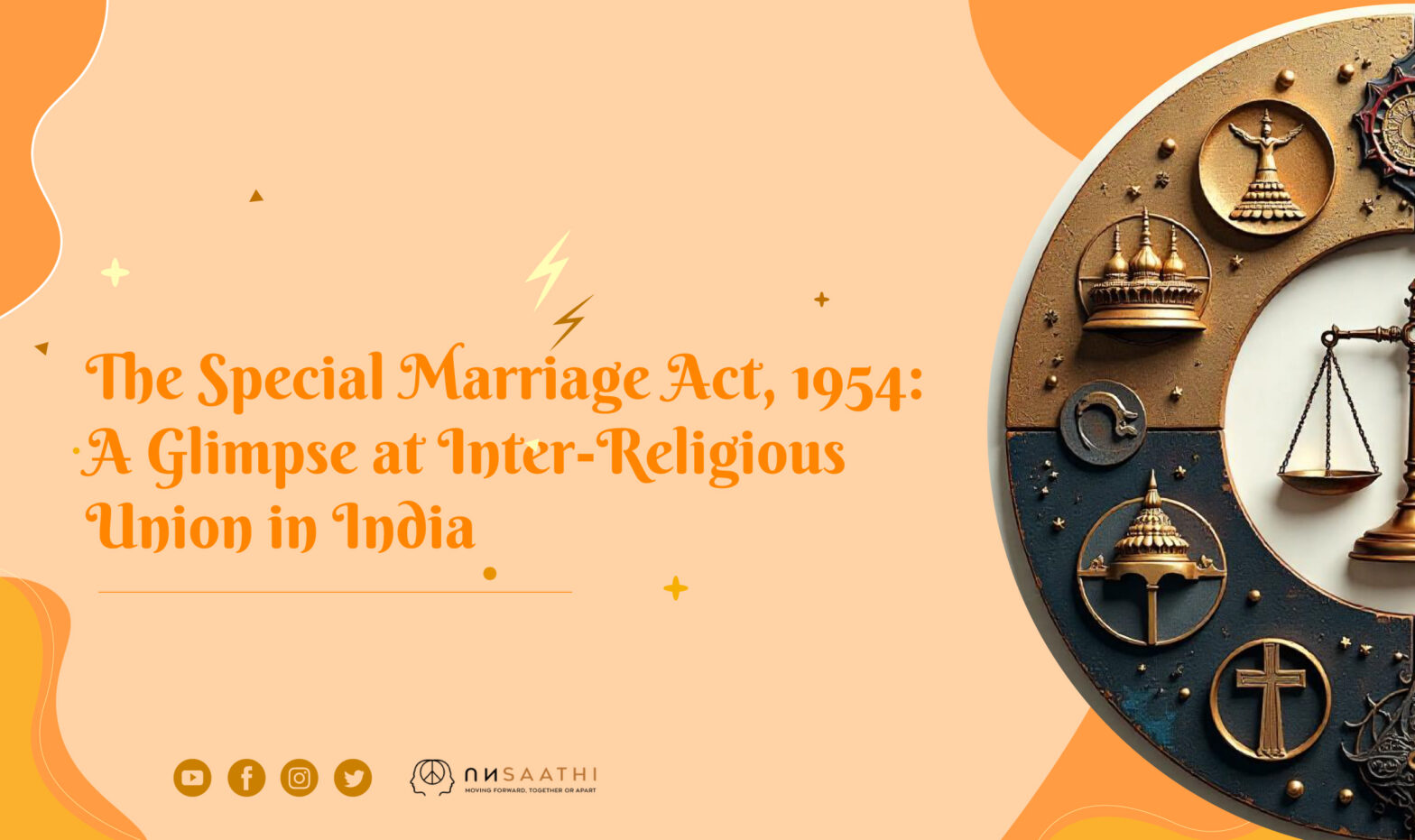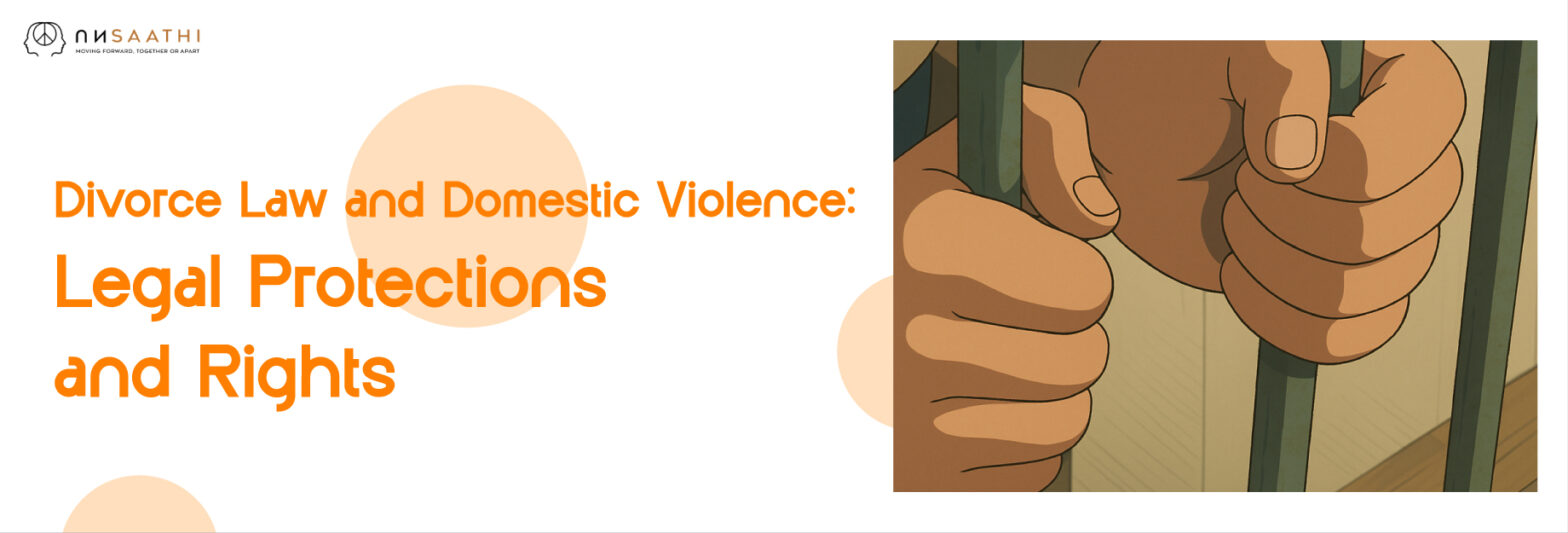Myth Buster: Alimony in India is not for females only

Many of the conversations about divorce and its financial effects bring to mind the woman who is seeking alimony from her ex-husband. Though post-marital financial maintenance has, historically, and even in today’s world, been a right of the female spouse, the fallacy that post-marriage alimony or, in fact, maintenance, as termed under Indian law, is an exclusive right of a female spouse is an oversimplification and therefore requires a precise disambiguation.
The legal context in India, although evolving and practically delicate, takes into account the financial vulnerabilities that any spouse (i.e. the husband as well as the wife) may encounter upon the breakdown of a marriage and offers a mechanism for seeking maintenance, irrespective of the gender of the party in need.
Understanding the Concept of Alimony and Maintenance in India
Though the terms are used interchangeably, maintenance is the more legally accurate term, according to the Indian perspective. It refers to the financial support that one spouse pays the other, either during the pendency of a legal separation or divorce proceedings (interim maintenance) or after the divorce is final (permanent alimony or maintenance). The rationale for maintenance is to prevent both spouses from being rendered impoverished or forced to accept an unreasonably reduced standard of living — especially when a spouse is financially dependent on the other during the marriage.
The Legal Framework Governing Maintenance:
The right to claim maintenance in India is codified in various statutes, given the diversity of personal laws that operate between various religious communities:
Section 125 of the Code of Criminal Procedure (CrPC), 1973 and Section 144 of the Bhartiya Nagrik Suraksha Sanhita, 2023: This is a secular provision that provides a speedy and summary remedy for the maintenance of wives, children (legitimate or illegitimate, minor or major unable to maintain themselves), and parents unable to maintain themselves. Significantly, the expression “wife” under this segment has been interpreted to include women who have been separated through divorce or a decree of judicial separation. Historically, section 125 and section 144 does not explicitly prevent a husband in financial distress from seeking aid, although the practical application of it in favour of a man seeking recourse has been less common, with attention instead primarily focused on allocating support for dependent women and children.
Hindu Marriage Act, 1955: The act governs marriages among Hindus, Buddhists, Jains and Sikhs. Section 24 is for maintenance and alimony during the litigation and expenses of proceedings to be awarded to the wife or the husband in case he or she does not have enough independent income for her or his support.
Permanent Alimony and Maintenance: Section 25 of the Act gives the court jurisdiction to direct either the wife or the husband to pay a gross sum or a monthly or periodical sum to the other spouse for purposes of maintenance until the death of the person receiving the maintenance, or until the marriage of the person receiving maintenance, or until the person receiving maintenance has sexual intercourse with any population outside of marriage (in the case of husbands) or has not remained chaste (in the case of wives.) This provides both spouses with the right to claim maintenance.
Special Marriage Act, 1954: The act allows civil marriages for all Indians, regardless of religion. Section 36 relates to alimony pendente lite and the expenses of proceedings, and Section 37 deals with permanent alimony and maintenance — similar to the provisions of the Hindu Marriage Act, the parties are able to claim maintenance on similar terms.
The Divorce Act, 1869 (for Christians): This Act applies to the divorce of Christians in India. Sections 36 and 37 are related to alimony pendente lite and permanent alimony, which are traditionally directed towards relief to wives, but the language contained does not, and should not be interpreted, to exclude the idea that a man should also claim maintenance, if he is a financially dependent person and is unable to earn under exceptional circumstances.
Personal Laws Applicable for Muslims: The maintenance of divorced Muslim women is mainly governed by the Muslim Women (Protection of Rights on Divorce) Act, 1986, which provides reasonable and fair provision and maintenance to be made and paid to her within the iddat period by her former husband.
After this period, the burden of furnishing maintenance to a missus Muslim who cannot support herself shall be placed upon her relatives who would inherit her, and in the absence of such relatives, the State Wakf Board. This act speaks of only the divorced Muslim women’s rights; however, the principle of equity and justice may entitle a dependent husband to maintenance under relevant provisions of law.
Considerations Of The Courts When Deciding Maintenance
Indian courts consider various evolving factors for granting maintenance and plain determination of the quantum. And these influences are to promote a fair and just result for both parties:
Financial needs and earning capacity of the applicant’s spouse: The court examines whether the applicant’s spouse can support himself or herself independently, taking into account educational background, age, health, skills, and the availability of the job. A spouse who is genuinely unable to earn enough to support themselves, nonetheless, would be seen favourably by the courts if they were to claim maintenance.
Financial Resources and Earning Possibilities (of the non-applicant spouse): The court also examines the income, assets, and financial obligations of the spouse requested for maintenance. Whether this spouse is in a position to provide aid without excessive burdens is, therefore, an important question.
Standard of living: The lifestyle enjoyed by the couple during their marriage is one factor, but the court acknowledges that the standard of living after their divorce may have to be different. The purpose is to avoid a significant and unfair decline in the quality of life of the economically weaker partner.
Length of the Marriage: The longer the marriage, the more likely the couple has become financially interdependent, and the courts are persuaded to award permanent alimony or a large maintenance amount, especially if one of the spouses has been out of the workforce for an extended period of time to care for the family.
Conduct of the Parties: Fault-based divorce has slowly become unfashionable; however, the conduct of the parties during the marriage may still be a relevant factor in determining maintenance. For example, if the applicant’s spouse has committed adultery or has been guilty of cruelty, it may affect their eligibility for or quantum of maintenance. Likewise, if the non-applicant spouse’s behaviour was the cause of the marriage breaking down and the other spouse suffers financially, this may bolster the maintenance claim.
Other Relevant Circumstances: Courts have the discretion to look at any other factors that they feel relate to the particular situation of the case, allowing for an overall and fair evaluation. Factors could include things like dependent children, health issues for either partner, and one partner making a major move to bolster the other partner’s career or financial viability.
Men have a right to maintenance, too – An evolving perspective.
Several acts had formal provisions for men to seek maintenance under certain circumstances, but in practice, they would often lose out due to societal customs and traditional notions of gender roles. However, societal changes, recent awareness of gender equality issues, and a significantly growing number of men rising from divorce financially wiped out (for example, when the wife is the main provider or when the husband sacrifices his whole vocation to care for the family) more advantages of these provisions for men pandemic.
These maintenance laws are written with an understanding of gender neutrality. In landmark judgments, it has been held that entitlement to maintenance should stem from true financial need and inability to fend for oneself, not be a product of gender stereotypes.
Alimony claims of men who had been homemakers, who endured career sacrifices in support of their wives’ ambitions or who are disabled and unable to earn are getting more sympathetic treatment, even in the courts.
Costs and Challenges:Though the legal framework and changing interpretation of the law are helpful, certain practical challenges exist in implementing men’s right to alimony.
Societal Stigma: Even if they have the right, men who are looking for alimony might still face social stigma and ridicule, which could be a deterrent from exercising their legitimate legal rights.
The burden of Proof: The burden to prove financial dependence and inability to maintain oneself often rests squarely on the applicant, and men might find themselves under suspicion for having an easier time establishing this, especially in patriarchy.
Lack of Awareness and Access to Legal Aid: Men may be unaware of their right to claim maintenance, and those with financial limitations may not have access to legal aid and counselling.
Maintenance and Alimony Laws for Gender Neutral Justice
To say that alimony is for women only is a false premise that is easily disproved. Both spouses have the right to seek maintenance according to their actual needs and lack of means of livelihood after the dissolution of marriage under the legal framework consisting of personal laws and other secular laws. Although women may have historically been the primary target owing to the socio-economic structures present, the principles of gender neutrality have now been recognized more and more in judicial action.
The changing nature of relationships and the increasing variety of financial situations mean that the context around maintenance needs more consideration. A more gender-neutral application of these laws encourages other men leaving the household to escape that potential financial vulnerability and would allow women in a similar situation to seek recourse under the law and to have a similar paying capacity in life after divorce, a life of dignity and self-respect towards their future efforts. The emphasis must continue to be on real financial needs and outcomes regardless of the gender of the person applying, thus reinforcing the tenets of justice and fairness in Indian law.



